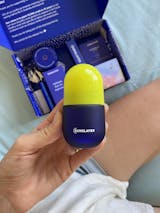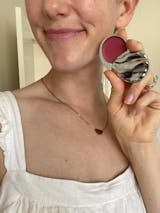THE PROBLEM WITH SUNSCREENS
Skin cancer is one of the most common cancers worldwide
Australia has one of the highest skin cancer rates in the world.
Every year, about 2000 Australians die from skin cancer.
Sunscreen is important to protect us from the harmful UV rays that cause premature ageing and skin cancer.
However, many sunscreens contain chemicals that are harmful not just to us but also to our environment and our oceans.
Chemicals like oxybenzone and octinoxate absorb into our skin and stay in our body for weeks. It has been shown to disrupt our hormones, weaken our immune system and traces of it have been found in breast milk which is why this type of chemical sunscreen is not safe for pregnant ladies, new mothers and their babies.
CORAL REEFS ARE THE RAIN FORESTS OF THE OCEANS
Most coral are coated in an algae-like substance known as zooxanthellae. This algae converts sunlight and carbon dioxide into energy, nutrients and oxygen for the coral by way of photosynthesis.The algae zooxanthellae are also responsible for the color seen in corals. Global warming, rising ocean temperatures and seawater pollution can cause this algae to leave the coral.
Chemicals such as Oxybenzone, Octinoxate and Octocrylene can also cause DNA damage to coral and kill these algae cells.
Without the algae, corals lose their color and source of nutrients, eventually becoming white and brittle. This phenomena is known as coral bleaching.
EVERY YEAR 14,000 TONS OF SUNSCREEN ENDS UP IN OUR OCEANS
That's the same as pushing 2 large garbage trucks 🚚🚚 full of sunscreen into our oceans every day! 70% of sunscreens in the world right now actually kill our coral reefs. Research has shown that it takes only 1 drop of oxybenzone in 6 Olympic size pools to cause damage to coral (Yikes!).
Scientists have predicted that if things continue the way they are now, we might lose all our coral reefs in the next 50 years.
WHY SHOULD WE CARE?
Coral reefs make up only 1% of the ocean floor but they provide food and shelter to 25% of our marine mammals.
They also act as natural barriers against waves, storms and flooding.
They protect our shoreline from erosion.
They absorb carbon dioxide from the air. Excess carbon dioxide leads to global warming resulting in much hotter summers, bush fires and flash flooding.
BESIDES THE HARMFUL INGREDIENTS, THE OTHER PROBLEM WITH SUNSCREENS IS THE PACKAGING
Most sunscreen products are packaged in Plastic
Majority of our beauty products are not kerbside recyclable.
Most store bought sunscreens come in either plastic polypropylene (PP) or polyethylene (PE) tubes, pump/spray bottles or aerosol spray cans.
Plastic PP or PE tubes are made of multiple layers of different types of plastic. These need to be separated before they can be recycled. Unfortunately, most kerbside recycling facilities are not able to do this.
Similar to plastic sunscreen tubes, pump/spray heads contain many different types of plastic and these too need to be separated for it to be recycled properly.
Aerosol cans can be kerbside recycled but they must be completely empty. Aerosol cans that still have substances left inside are still pressurized, meaning they could explode or combust if punctured or crushed, making it dangerous for a trash compactor or recycling sorter. Aesorol spray cans often come with tiny plastic caps on the spray nozzles. These are too small to be sorted and they often end up in landfill.
Only 10% of our plastic gets recycled every year.
Unfortunately, we're terrible at recycling.
Majority of our plastic waste either gets shipped abroad, ends up in landfills or in our waterways.
Every year, 8 million tons of plastic ends up in our oceans. We contribute 130,000 tons of that plastic waste.
GOOD SUNSCREENS DON'T HAVE TO COST THE PLANET
We are proud to bring you a better alternative.
A plastic free SPF50+ natural sunscreen that's safe for Us and our Oceans too!


